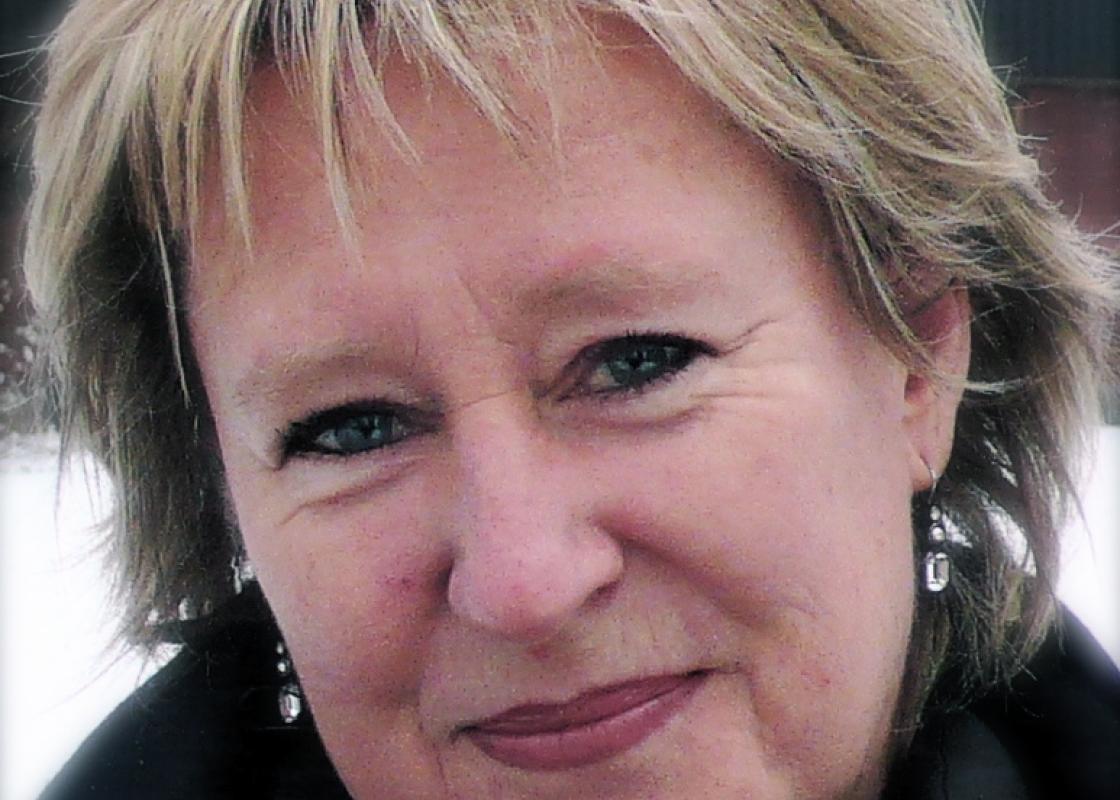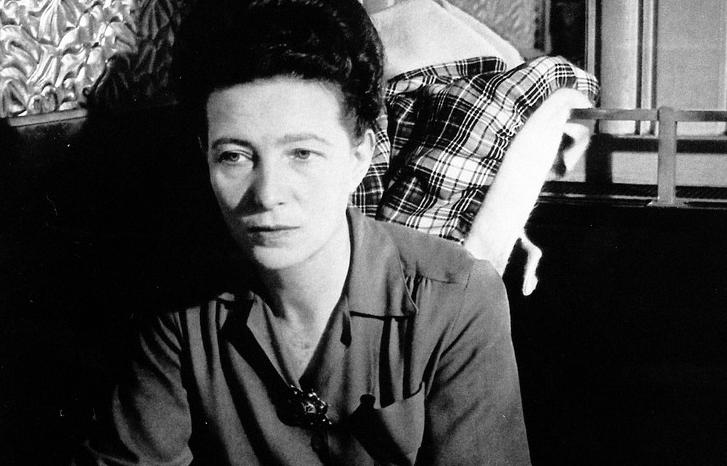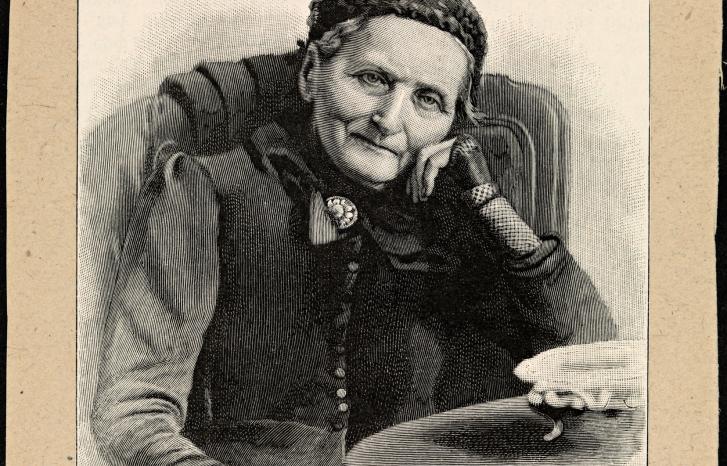The title of the book was enticing: Sexual Politics. As a young university student, Karin Widerberg bought the book because of its name. The book analyses sexual descriptions in the works of Henry Miller, Norman Mailer and D.H. Lawrence, and contrasts this with the views of the homosexual author Jean Genet. The author was the American literary theorist Kate Millett.
Karin Widerberg read the book in one sitting. She absorbed the text – line for line, word for word. She dissected the authors who up until then had been regarded as the vanguard of the sexual revolution. The book triggered something within Widerberg. She herself had experienced a vague feeling of discomfort when she read Miller, Mailer and Lawrence. Millet described the source of her discomfort: patriarchy and contempt for women. Millet’s book that dared to confront the sexual revolution is now considered to be one of the classics of the 1970s feminist movement.
“It was an epiphany. I felt that this is how it is. This is how men view women. The sexual revolution happened on men’s terms and it was very tough for young women. We were supposed to be free, but the women who seized their freedom were treated badly.”
The book Sexual Politics is the main reason that Widerberg wanted to become a researcher. If she could work with issues like these, a career in research seemed very appealing. Even today, “sex” is the keyword when Karin Widerberg sums up what drives her research.
A focal point
“Although it is not always the topic of my research, sex is a focal point. By looking at sex, it is possible to interpret a great deal about gender relations. Whether it is local, national or global, sexuality is a focal point for feminism and gender equality. This was my view when I began as a researcher and I still believe this today,” says Widerberg.
Widerberg’s focus on sexuality is not so evident from her list of publications, which is quite diverse. Throughout her 40-year career as a researcher, she has published works on a wide variety of topics, including sociological methods, scientific writing and tiredness.
“Sexuality as a topic is both important and challenging. It’s a recurrent theme running through my concerns and interests,” she states.
Her office is spacious, with packed bookshelves and three large picture windows overlooking the university’s square. In addition to her position as professor, Widerberg is the head of the Department of Sociology and Human Geography at the University of Oslo. The large office comes with the job as department head. It is located on the second floor of Harriet Holter’s House on the Blindern campus. She is very pleased with the building’s name.
“We had to fight hard to get that name,” she says.
To Lund
When she was ten years old, she lost her father. Her mother was alone with five children and had to return to work outside the home. Widerberg believes that her interest in gender roles may have a connection to this experience. Growing up without a father made her especially sensitive to the role distribution in the homes of her friends. There were many stay-at-home mothers and employed fathers who were mostly absent. But becoming a professor was not an obvious career path for the daughter of a merchant from Malmö. In the residential area where she grew up, nobody talked about the university. She was not particularly interested in school either, but she liked to read. She read through all the bookshelves at home, the library at her primary school and then the main library in the city. In her early teenage years she used all of her pocket money on books – mainly fiction.
She did not have high hopes when she started at the university in Lund. Before she began, she got her boyfriend, who later became her husband, to promise that he would support her if she did not manage to complete her education. But the university turned out to be exactly right for Widerberg. Reading, analyzing and writing suited her very well.
“It was intense. It was fantastic. I got to experience cognition and knowledge production as something that was liberating for the mind,” she explains. Studying was easy for Widerberg. She sailed through her subjects. She enjoyed the sociology of law most of all.
“Law was very interesting. It deals with societal norms. How things are supposed to be. The sociology of law is the study of how laws function. It’s about the social factors surrounding the law, about the connection between laws and practice. The lawyers aren’t interested in that, but for me it was very exciting,” says Widerberg.
Marxism
Her days as a student coincided with the heyday of Marxism at Swedish universities. Widerberg was very active outside the classroom.
“There was an enormous amount of intellectual activity. We read about Marxism and feminism, and discussed ideas nearly 24 hours a day. It was a fantastic time,” she says. Widerberg worked with the journal Zenit, a leading academic, left-wing journal in Sweden.
Enthused by her encounter with Kate Millett, Widerberg accepted an offer to pursue a doctoral degree in the sociology of law. The topic of her doctoral thesis was the legal and social position of women in Sweden from 1750 to the 1970s.
See also: The masculine avant-garde that fostered feminism
Completely alone
Widerberg continued her involvement in a wide array of activities while she worked on her doctoral degree. In Lund she helped to develop a centre for women’s studies and establish the journal Kvinnovetenskaplig tidskrift, which today is one of the largest Nordic journals for gender research. In spite of this, she lacked contacts within her own field.
“The doctoral thesis itself was a nightmare. It was extremely difficult. There were no other feminist researchers or gender researchers. It’s hard to understand today, but I was completely on my own with the topic and alone at the department,” she explains.
At the library she found only one book that dealt with the topic she was writing about. The book, a U.S. publication, was entitled Women and the Law.
“My supervisor was very nice. I had a good relationship with him. But he knew absolutely nothing about feminist research,” she says.
A turning point came when Widerberg came into contact with Tove Stang Dahl, a pioneer in the area of feminist law.
“I was involved in getting things started in Sweden, but I drew my intellectual and academic inspiration from Norway. I attended all the research conferences that were held. Both Tove Stang Dahl and Harriet Holter included me. They took me under their wing and let me be a part of things,” she says.
Because of her good contacts in Oslo, she took her family and moved to the city in 1983 to take a position as associate professor at the Department of the Sociology of Law. She advanced to full professor before new responsibilities awaited her as the first head of what is now the Centre for Gender Research.
“Those years at the centre were some of the most intellectually enriching of my life. It was interdisciplinary. As the head of the centre, I also had the privilege of being able to take a little bit from all fields. I had to keep up with everything. It was somewhat like the 1970s, but they were better organized,” she explains.
Back to sociology
In 1992 she was offered a professorship in sociology, so she left interdisciplinary research and returned to an individual subject area. Today she is quite comfortable with her decision.
“For me it has to do with knowledge development. I have the same thirst for knowledge that I did when I was young. I’m just as excited when I read something that gives me greater insight. I love being a researcher, and I didn’t want to be anything else except a professor. But I really liked coming back to a single discipline.”
Widerberg emphasizes that she still has an eye for gender issues.
“Sociologists are concerned with how things are done. I’m a feminist, and for me gender is always a factor, but now I look instead at how gender influences the phenomenon I’m studying. Class is another factor that is always present in my work because I also have a background in Marxism. But I’m interested in many different topics. Right now it suits me well to be working in one discipline. I don’t miss the centre.”
By the same token, she benefited enormously from the time she spent there.
“When I look back, I’m glad that I have been involved in various disciplines and faculties so that I could see different ways that knowledge is produced,” she says.
So tired, so tired
Widerberg finds certain topics interesting because gender plays a central role. But this is not the case for all topics. One example of this is the research project on tiredness, which she conducted with Ulla-Britt Lilleaas, a professor of health sciences at the University of Agder.
“The starting point for the project was that we saw that the statistics showed that sickness absence related to stress and tiredness was increasing. The questions we began with were: What happens in the normal state of tiredness? What do people do before they get sick? Why don’t people listen to the signals their body is giving them when it’s saying it’s tired?”
Widerberg and Lilleaas found out that two-thirds of the adult population feel so tired and unfit that they themselves regard it as a problem. They also learned that people walk faster and do more and more things simultaneously in order to save time. The Internet also steals sleep from people, according to the researchers. In recent years, people who use the Internet excessively have reduced the amount a time they sleep by one hour. But what is it that makes people keep going?
“It has to do with how a person interprets signals. We talked with people who feel that they have a high pulse rate and move at a quick pace. Many believe that they gain social recognition by living in high gear like this, so it becomes a question of identity. Then it becomes a normal way of life, even though the doctors say it is an abnormal state,” she explains.
These problems cannot be solved by telling people that they should sleep or rest more.
“This dangerously fast pace becomes normal. In order to change this, the work culture and social culture need to be addressed,” says Widerberg.
A gender perspective
Although the research topic was tiredness, Widerberg always incorporates a gender perspective. Men and women are very different in the ways they experience tiredness.
“Being tired is mainly related to work. Different professions have different tempos and different opportunities to recoup. The fact that the labour market in Norway is so segregated by gender has a huge impact on this,” explains Widerberg.
The researchers found that tiredness is a difficult topic for many men.
“Many men regard it as feminine to say they are tired, and they therefore try to hide it on the job. Many of them also find it difficult to come home and be tired. Men who do often hear from their wives that they should work less, so in the end they grit their teeth and pull themselves together,” she continues.
When women are tired, it is often related to their desire to be a “good girl”.
“When women are tired, it is often connected with their planning role both at home and at work, and the way they deal with the issue of being a ‘good girl’.”
As the head of the largest sociology department in the Nordic region, Karin Widerberg has little time to conduct her own research. The books in her packed office library shelves remain unsorted. Although administrative duties take up most of her time, the professor has plans to begin a new research project.
“When I’m finished with my job as department head, I want to return to writing about sexuality. I think it will be exciting to see how I will work with it now, after a long career in research, because it is a field that has changed a great deal since I was young,” says Widerberg.
In other words, back to her core project.
Translated by Connie Stultz.
Professor of Sociology and Head of the Department of Sociology and Human Geography at the University of Oslo.
Selected publications in English:
"Memory Work: Exploring Family Life and Expanding the Scope of Family Research", Journal of Comparative Family Studies, 42 (3), 2011, pp. 329-337
"In the Home of Others: Exploring New Sites and Methods When Investigating the Doings of Gender, Class and Ethnicity", Sociology, 44 (6), 2010, pp. 1181-1196
"Dorothy E. Smith", In Stones, Rob (ed.): Key Sociological Thinkers. Palgrave Macmillan: 2008, pp. 311-323
"Tiredness in the Light of Institutional Ethnography", Sociologisk forskning, (3), 2006, pp. 74-82
"Disciplinization of Gender Studies. Old Questions, New Answers? Nordic Strategies in the European Context", NORA. Nordic Journal of Feminist and Gender Research, 14 (2), 2006, pp. 131-140
"Situating Knowledge - Liberating or Oppressive?", In Ericka, Engelstad & Siri, Gerrard (ed.): Challenging Situatedness. Gender, Culture and the Production of Knowledge. Eburon Academic Publishers: 2005, pp. 259-267
"Embodied Gender Talks - The Gendered Discourse of Tiredness", In David, Morgan, Berit, Brandth & Elin, Kvande (ed.): Gender, Bodies and Work. Ashgate: 2005, pp. 101-113



